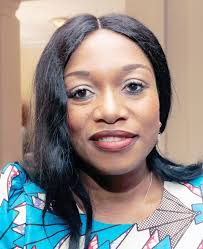By
Ann Zulu
ZAMBIA
joined the rest of the world in the 16 days of activism against gender-based
violence (GBV) on November 25, an annual campaign that for more than 20 years
has aimed at eradicating violence.
Gender-based
violence can be defined as all acts perpetrated against women, men, girls and
boys on the basis of their sex which cause or could cause them physical,
sexual, psychological or economic harm.
GBV
violates the human rights of an individual, disrupts families and undermines
socio-economic development of a county.
Domestic
violence is the key gender-based problem in Zambia and actions to eradicate the
vice largely address women’s and girl’s vulnerabilities.
This
year’s 16 days of activism against GBV theme “Orange the world: Raise money
to end violence against women and girls”, is one indicator that much
attention is given to women and girls than to men and boys, thereby sending a
wrong signal that only women and girls are vulnerable to GBV.
Such
a one-sided approach casts a shadow on the plight of the men and boys who are
usually silent about their predicament.
While
news of violence and crimes against women and girls are reported extensively in
the media, there is a growing number of men and boys who are silently facing
physical and psychological violence at the hands of their family members and
spouses.
Notwithstanding
the fact that women and girls are more vulnerable to violence, side lining male
victims could have negative consequences on the efforts towards preventing and
eradicating the scourge of GBV.
Zambia
has largely remained a patriarchal society; for a man to admit being harassed
by a woman is humiliating and, in a way, shameful.
Even
worse is the fear of humiliation by a husband who wants to go public and
declare being abused by his wife.
Domestic
violence against men in Zambia is not well recognised by the law enforcers with
the generalised perception that men cannot be victims of violence.
In
many instances, male victims of GBV would rather not report such cases to the
police and other law enforcement agencies for fear of being ridiculed.
Joseph
Phiri, a Lusaka dweller who confesses to have on several occasions fallen
victim of both verbal and physical violence by his wife, thinks reporting her
to the police is taboo.
He
says that even if he was to report the matter to the police, they would not
take it serious.
“My
wife always suspects me of cheating on her because I have a child with another
woman. So she insults me and sometimes hits me with any object.
“She
once hit me with a glass and was cut; I could not go to the hospital because I would
need to explain my injury: I felt so embarrassed. Reporting her to the police
is even worse because they will be the first ones to laugh at me,” he said.
Like
women, men also find it hard to cope with abusive marriages and relationships
and in reality the situation is worse for men because they cannot easily share
their experiences.
There
is a silent but factual increase in the number of men who are physically or
psychologically abused by their spouses.
Those
silent men who are beaten, denied sex and food, and locked out of homes, also
need help. Some become perpetually unhappy, lose friends, become insecure and
eventually lose their minds.
Others
resort to spending most of their time in bars to drown their sorrows and end up
being alcoholics with the end result of a broken marriage, street kids and
increasing the risk of HIV infections and early death.
Gender
activist Gladys Mutukwa has bemoaned the increasing numbers of men being
battered by their wives.
She
has encouraged men, who are GBV victims, to rise to the occasion and break the
silence by sharing their experiences and reporting such cases to law
enforcement agencies.
Ms.
Mutukwa notes that being silent could be fatal, emphasising on the growing
trend of women killing their spouses.
“The
number of men being battered by their wives is very alarming; men also need to
come out in the open and talk openly about this issue the way women are doing.
Keeping quiet is no solution, it can even be regrettable because nowadays men
are even murdered by their spouses,” she said.
It
is also important to note that violence is increasing with scenarios where
women, especially those with significant incomes and flying careers, undermine
men’s sense of worth.
In
some homes, women torture their spouses with constant criticism, belittling their
husband’s abilities and competencies. Some women have mastered the art of
manipulation of feelings and emotions to induce guilt, subvert husband’s
relationship with the children and repeatedly make and break promises.
It
is now clear that effects of GBV, either engineered by men or women, can be
devastating and long lasting.
Any
man or woman living in an abusive environment leads to disillusionment and sometimes
self-destruction.
Maybe
rather than addressing GBV symptoms through depicting the woman’s face of
gender violence, we need to seriously address the causes.
The
solution is likely to be found in a harmonized and collective approach that
deeply addresses the concerns and issues of both women and men.










